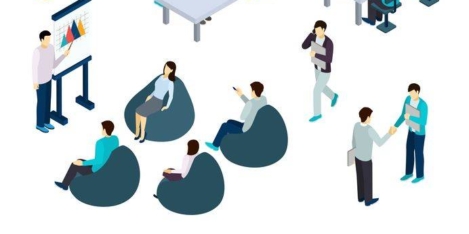To provide the best experiences, we use technologies like cookies to store and/or access device information. Consenting to these technologies will allow us to process data such as browsing behaviour or unique IDs on this site. Not consenting or withdrawing consent, may adversely affect certain features and functions.
The technical storage or access is strictly necessary for the legitimate purpose of enabling the use of a specific service explicitly requested by the subscriber or user, or for the sole purpose of carrying out the transmission of a communication over an electronic communications network.
The technical storage or access is necessary for the legitimate purpose of storing preferences that are not requested by the subscriber or user.
The technical storage or access that is used exclusively for statistical purposes.
The technical storage or access that is used exclusively for anonymous statistical purposes. Without a subpoena, voluntary compliance on the part of your Internet Service Provider, or additional records from a third party, information stored or retrieved for this purpose alone cannot usually be used to identify you.
The technical storage or access is required to create user profiles to send advertising, or to track the user on a website or across several websites for similar marketing purposes.
 There is a theory that when companies talk about issues such as corporate social responsibility they are doing so because it helps them to achieve their business goals. This is the coldly rational thing to do according to people like free market guru Milton Friedman who argues that companies should not actively pursue altruistic ends unless that pursuit is ultimately in the interest of their shareholders. As Friedman puts it: ‘Hypocrisy is virtuous when it serves the bottom line. Moral virtue is immoral when it does not’.
There is a theory that when companies talk about issues such as corporate social responsibility they are doing so because it helps them to achieve their business goals. This is the coldly rational thing to do according to people like free market guru Milton Friedman who argues that companies should not actively pursue altruistic ends unless that pursuit is ultimately in the interest of their shareholders. As Friedman puts it: ‘Hypocrisy is virtuous when it serves the bottom line. Moral virtue is immoral when it does not’.










 Generation Z, the latest generation to enter the workforce, are more likely to be motivated by job satisfaction and working for social good than by money, a new report claims According to new research from Huawei, in partnership with Chris Brauer, Director of Innovation at Goldsmiths, University of London, based on responses from 2,000 18-25-year olds’ across the UK, also reveals that a new tribe of working professionals among Gen Z is emerging, the ‘New Working Order’.
Generation Z, the latest generation to enter the workforce, are more likely to be motivated by job satisfaction and working for social good than by money, a new report claims According to new research from Huawei, in partnership with Chris Brauer, Director of Innovation at Goldsmiths, University of London, based on responses from 2,000 18-25-year olds’ across the UK, also reveals that a new tribe of working professionals among Gen Z is emerging, the ‘New Working Order’. 




 Over a quarter of businesses plan to hire temporary or contract staff in the next 12 months to help plug skills shortages created by digitalisation as more than half of CEOs are concerned about a lack of digital skills within their organisation. This is according to the Robert Half 2019 Salary Guide which argues that technology is reshaping businesses; with two in five UK organisations (38 percent) considering digitalisation as the main evolving force in the workplace today. This shift has created demand for a new set of skills, such as DevOps, data visualisation, data management and analytics. While softer skills such as resilience, adaptability and critical thinking remain key characteristics in potential employees, a third (31 percent) of employers state that a candidate’s technical skillset is their most important consideration when making a new hire. Around 1.6 million1 (28 percent) UK businesses plan to hire temporary or contract staff in the next twelve months, to combat the lack available talent required, which is creating a critical skills gaps in the workplace.
Over a quarter of businesses plan to hire temporary or contract staff in the next 12 months to help plug skills shortages created by digitalisation as more than half of CEOs are concerned about a lack of digital skills within their organisation. This is according to the Robert Half 2019 Salary Guide which argues that technology is reshaping businesses; with two in five UK organisations (38 percent) considering digitalisation as the main evolving force in the workplace today. This shift has created demand for a new set of skills, such as DevOps, data visualisation, data management and analytics. While softer skills such as resilience, adaptability and critical thinking remain key characteristics in potential employees, a third (31 percent) of employers state that a candidate’s technical skillset is their most important consideration when making a new hire. Around 1.6 million1 (28 percent) UK businesses plan to hire temporary or contract staff in the next twelve months, to combat the lack available talent required, which is creating a critical skills gaps in the workplace.






 London’s office market continues to attract occupiers and investors, despite political and economic uncertainty JLL’s recent Central London offices seminar revealed. The event highlighted the strength of the capital’s office market where Central London has seen sustained levels of both leasing and investment activity so far in 2018 and JLL anticipates that the final numbers will match, if not exceed those recorded in 2017. Take-up of offices across Central London reached 8.3m sq ft at the end of Q3 2018, with 3.1m sq ft leased in the West End and 4.5m sq ft in the City.
London’s office market continues to attract occupiers and investors, despite political and economic uncertainty JLL’s recent Central London offices seminar revealed. The event highlighted the strength of the capital’s office market where Central London has seen sustained levels of both leasing and investment activity so far in 2018 and JLL anticipates that the final numbers will match, if not exceed those recorded in 2017. Take-up of offices across Central London reached 8.3m sq ft at the end of Q3 2018, with 3.1m sq ft leased in the West End and 4.5m sq ft in the City.










December 7, 2018
Seven reasons why this will not be the office of the future
by Mark Eltringham • Comment, Facilities management, Furniture, Workplace design
(more…)